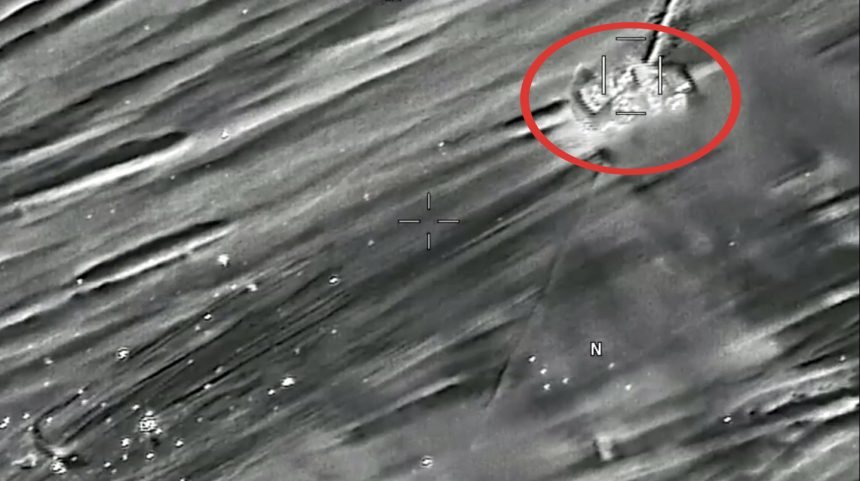Air Strike Hits Vehicle of Taliban Commander in Helmand Province, Afghanistan.
The NATO Special Operations Component Command, Afghanistan has announced that the Taliban “Red Unit” (special operations) commander in Helmand province, Mullah Shah Wali, alias “Haji Nasir”, was killed in a coalition air strike in Musa Qal’ah, Helmand on Dec. 1, 2017. One of Wali’s deputy commanders and three other insurgents were also killed in the strike.
The insurgent vehicle Wali was riding in was hit by what appears to be a single air-delivered weapon while moving at speed across open country. Although no information about the platform or weapon used in the strike was released, it is likely a precision guided weapon employed either from a remotely piloted aircraft (RPA) or a manned combat aircraft possibly loitering at a distance while a remote asset such as an RPA (Remotely Piloted Aircraft) or other aircraft provided target designation and terminal guidance.
As commander of the Taliban “Red Unit”, a high-level intelligence and planning cell within the insurgent hierarchy, Mullah Shah Wali planned suicide bombings, IED attacks and special operations assaults according to a news release attributed to the Afghan Intelligence Service and quoted in “The Hill”, a Washington D.C. based news outlet. He was also “directly responsible” for coordinating operations and resupply of munitions, explosives and materials for the Taliban throughout Helmand province, where the Taliban runs opium cultivation operations to provide funding for terrorist operations. An Afghan Army special forces commander told media the terrorist “Red Unit” uses “advanced weaponry, including night vision scopes, 82mm rockets, heavy machine guns and US-made assault rifles.”
U.S. Army General John Nicholson, Commander, U.S. Forces Afghanistan, and commanding officer for the Resolute Support Mission in Afghanistan since March, 2016, told media the strike will, “disrupt the Taliban network, degrade their narcotics trafficking, and hinder their ability to conduct attacks against Afghan forces.”
While the strike on Mullah Shah Wali and the other ranking members of the so-called Taliban “Red Unit” is likely significant during the short-term in the region, the insurgent leadership has proven they can adapt to leadership losses in the past and maintain their tempo of operations. According to data compiled and reported by FDD’s Long War Journal, the Taliban currently still control “six of the [Helmand] province’s fourteen districts”.









